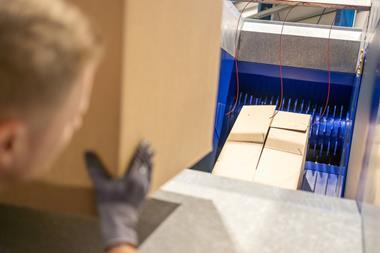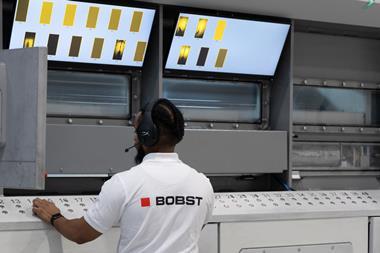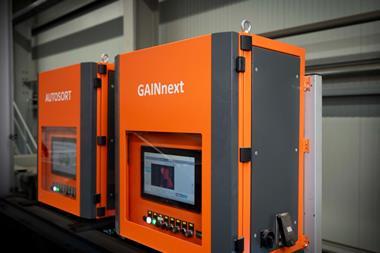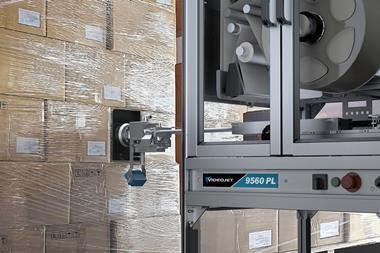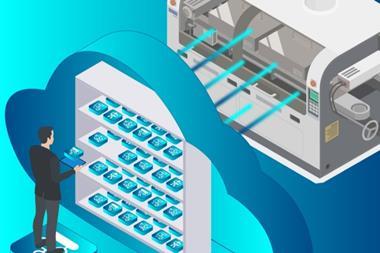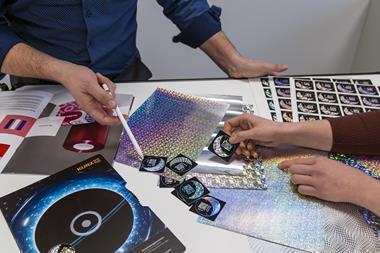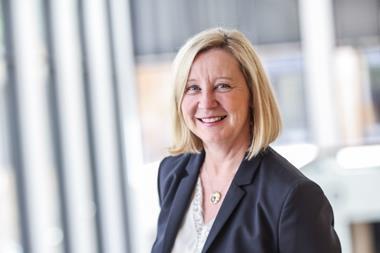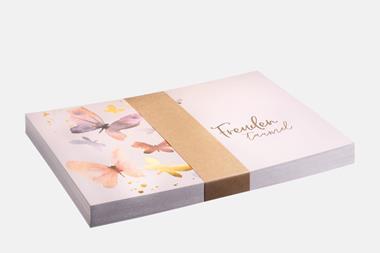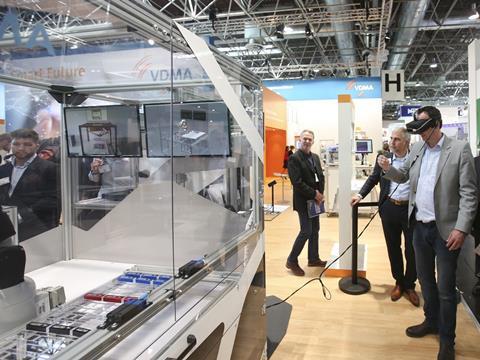
The Packaging Europe team decamped to Düsseldorf Messe in May, bringing along a camera crew and a stock of footcare products. The depth and breadth of innovation was as overwhelming as ever. However, one particular trend stood out: 2017 was the year that Industry 4.0 truly arrived at interpack. Tim Sykes reports.
interpack 2017 was the biggest ever edition of the world’s biggest packaging fair, with a record attendance of 2865 companies. Of the 170,500 visitors, 74 per cent came from abroad – another record. The high percentage of experts from a total of 168 countries made for highly satisfied faces among exhibitors, who delighted at promising business contacts and even concrete deals concluded in the seven-digit range. Visitors in turn benefitted from an internationally unrivalled multitude of innovations on display and a unique market overview.
Hans Werner Reinhard, managing director at Messe Düsseldorf, remarked: “interpack has again impressively confirmed its claim of being the world’s most important event and innovation platform for the industry every three years. Due to the concept of the newly created global ‘interpack alliance’, interpack as its flagship has also obtained more exposure in the growth markets abroad thereby attracting even more high-calibre experts to Düsseldorf.”
Smart manufacturing
interpack often serves, among other things, as a snapshot of the industry’s progress. Comparing conversations we had and exhibits we saw in 2017 with their counterparts in 2014, it’s clear that discussion of the fourth industrial revolution has shifted from largely the future tense to largely the present. Across interpack Industry 4.0 applications were on show – in commercialised, user-friendly solutions that deliver considerable efficiencies, manage personalisation and guarantee traceability across the supply chain.
Rockwell Automation’s Best Future Machine awards underlined the range of possibilities being realised by an ecosystem of technologies implementing smart sensors and automation products. Many of these are featured across the pages of this magazine. Meanwhile, interpack saw a number of significant product launches. Schneider Electric introduced its EcoStruxureTM Machine, representing a significant step forward in its ability to help its packaging machine builders design machine solutions that are ready for the Industrial Internet of Things (IIoT). EcoStruxure delivers Schneider Electric’s smart machine solutions, which are built on its IIoT-enabled open and interoperable EcoStruxure system architecture and platform. Siemens revealed further Industry 4.0 feats, including a collaboration with Bausch & Ströbel, with digitisation in machine building set to achieve efficiencies of 30 per cent by 2020. A particular highlight of the Siemens booth, featuring complete line planning tools, was the new MindSphere cloud based IoT operating system.
Bosch Packaging Technology gave practical demonstrations of how Industry 4.0 solutions can help achieve higher process safety and product quality in industries such as pharma and food. Detailed information about each machine, line or process status is provided by the Bosch's Condition Monitoring platform, which records data in real-time, enabling maintenance staff to react before cost-intensive process deviations or downtime occur. An example shown at interpack was the monitoring of filters, which ensure the consistent sterility of production processes. Special sensors within the machine control the sterilisation status of these filters. In case predefined parameters are infringed, operators receive a notification. This enables them to initiate maintenance activities quickly, and to prevent product loss due to non-sterile processes.
Meanwhile, Gebo Cermex displayed a number of world premieres relating to their 'Agility 4.0' concept - tailoring the possibilities of Industry 4.0 to facilitate efficient and agile supply chains in an age of urbanisation, customisation and e-commerce. The business is rolling out a host of solutions to realise the connected factory, with the iTRACK-powered Care Select feeding system (winner of Rockwell's 'Best Modular Machine' award), fenceless, laser guided robotics and the container handling technology AQFlex. Gebo Cermex also demonstrated its virtual factory simulation tools, which are bringing efficiencies in line design and training.
More broadly, interpack underlined how modular design of packaging and process lines and optimised digital operating concepts are playing an ever more pivotal role in reducing complexity in manufacturing and increasing flexibility in change-over. ‘Digital twins’ were much in evidence and several exhibits focused on virtual reality applications that allow machines or equipment to be experienced holistically to manage complexity better.
SAVE FOOD
Six years after the launch of SAVE FOOD at interpack 2011 the initiative has grown into a broad-based alliance of over 850 international members from industry, associations, NGOs and research institutes. One of the milestones of the Initiative is the SAVE FOOD Congress at interpack, the third edition of which was held on 4 May.
The Congress pursued a multi-dimensional approach to address the issue of food losses and waste comprehensively. Participants included high-ranking political representatives as speakers such as Vytenis Andriukaitis, EU Commissioner for Health and Food Safety, and Gargi Kaul, Joint Secretary & Financial Adviser at the Indian Ministry for Food Processing Industries, as well as committed NGOs activists and representatives from business. Over the course of the Congress the perspective changed, focusing either on global views or national details and conditions – with India as a focal theme this time. The Food and Agriculture Organization of the United Nations (FAO) presented results of a study in India funded by the Initiative; it had been carried out with the aim of identifying the mechanisms involved in losses of important base foodstuffs and of finding approaches for solutions.
As part of the congress the SAVE FOOD partners Messe Düsseldorf and FAO also signed a memorandum of understanding, in order to fix the cooperation for the coming four years. “It is an absolute hallmark of interpack to focus on attention-grabbing special topics,” explained Werner Matthias Dornscheidt, president & CEO of Messe Düsseldorf. “We are therefore delighted to be able to also fight food losses and waste with our partner, the FAO, and in cooperation with the industry and other supporters in future, too. This means we are committed to a good cause and communicate the potential that the packaging industry and related process industries hold in this context at the same time.”
innovationparc, the special show organised as part of interpack 2017, also addressed the theme of SAVE FOOD and presented very practical solutions for minimising food losses and waste. These also included the finalists and winners of the WorldStar Awards of the World Packaging Organisation (WPO). Awards went, for instance, to plastic bags for fruit that can enormously prolong shelf life thanks to built-in ripening-gas absorbers.

